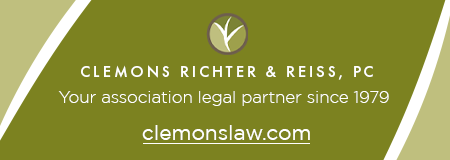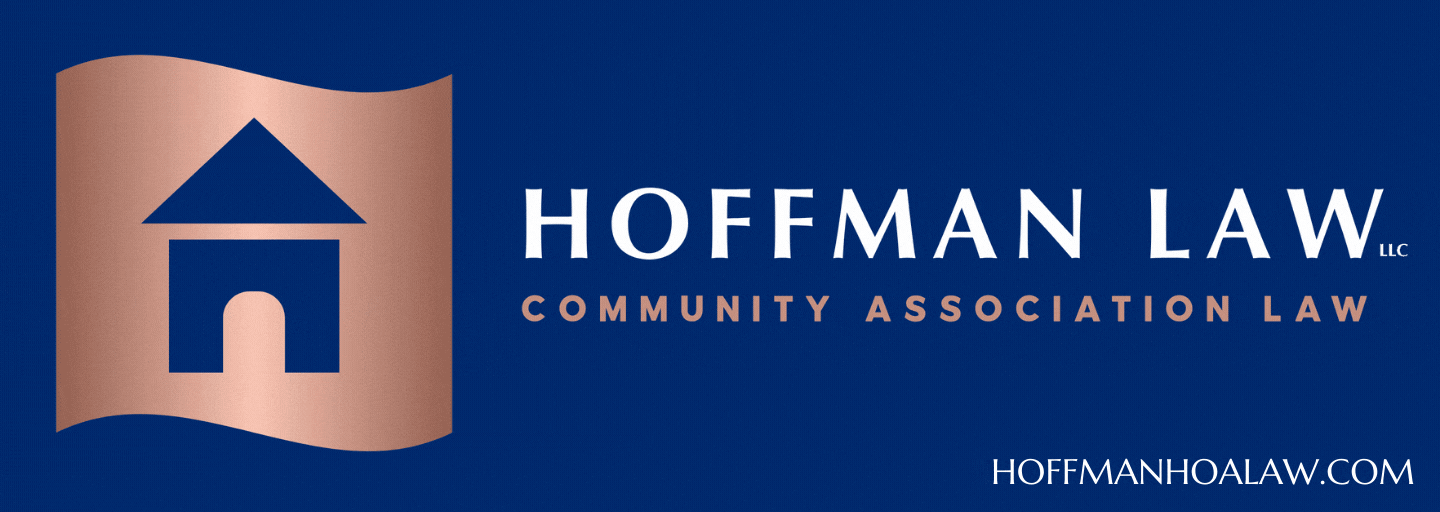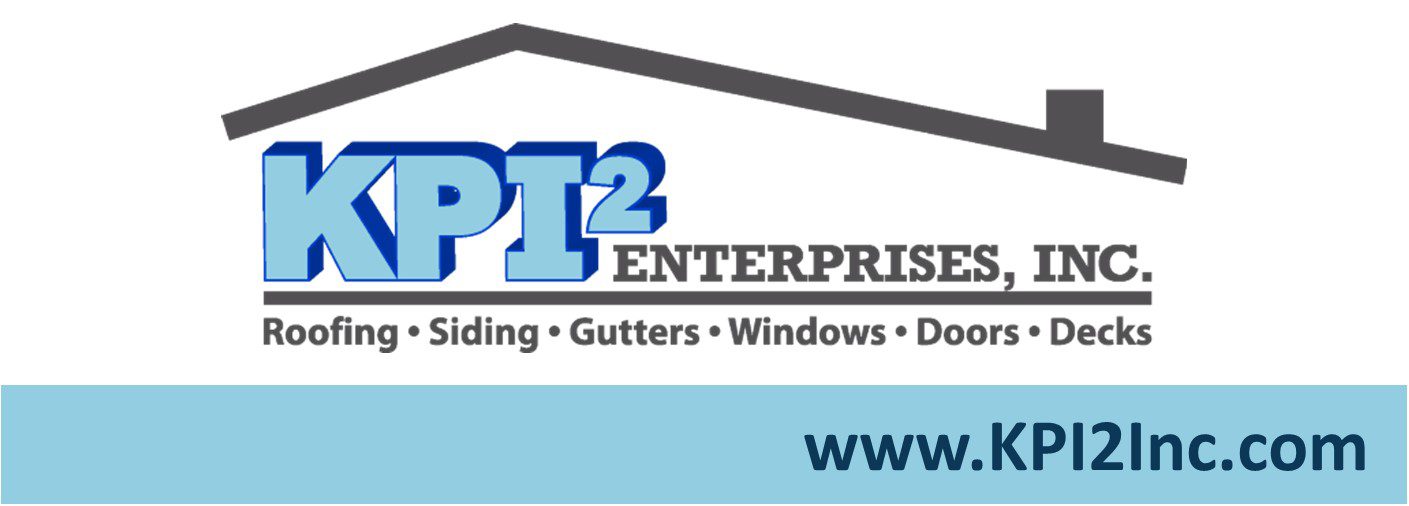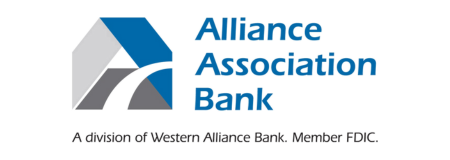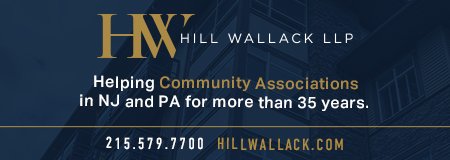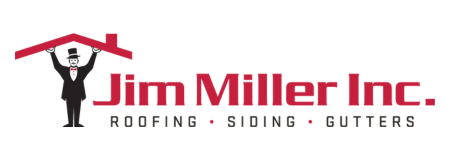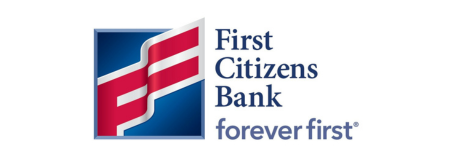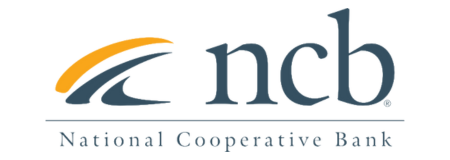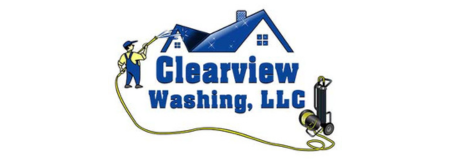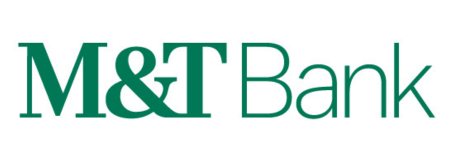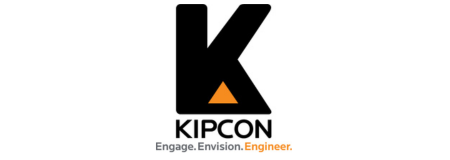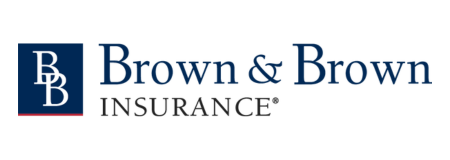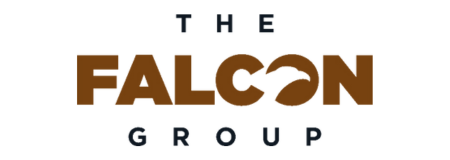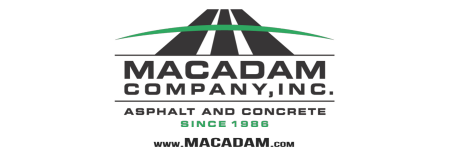Governance Policies & Bylaws
The Keystone Chapter of CAI is governed by a set of bylaws which include information on the following:
- Membership & Categories
- Annual Meeting & Meetings of Members
- Chapter Board of Directors & Officers
Please feel free to review the bylaws and contact the chapter office if you have any questions about any bylaw, rule or procedure.
Diversity, Equity and Inclusion
Community Associations Institute is committed to making diversity, equity, and inclusion a core aspect in our membership, on our staffs, and within the community association housing model at large. We firmly believe in the unique strengths of every individual and that diversity makes organizations more successful and communities more fulfilling. By actively cultivating and embracing diversity, we benefit from a vastly richer mix of ideas, perspectives, and life experiences that expand our thinking and our possibilities. We strive to foster a culture of discovery, innovation, and service as we continue to focus on our mission to build better communities.
Other Chapter Policies
In addition to the bylaws, the Board of Directors has adopted a policy and procedure manual governing chapter committees, and other aspects of the organization. Board members are also required to sign a Conflict of Interest policy.
Chapter Program Policies
Chapter Code of Conduct
In order to promote high standards of conduct and ethics, and to promote respect and professionalism among members, the chapter Board of Directors has adopted this Code of Conduct and encourages all members and attendees at chapter functions to comply with this code.
- Chapter members and attendees at chapter functions are expected to maintain high standards of conduct and treat fellow attendees, participants, sponsors, exhibitors and speakers with respect at all chapter functions and meetings.
- Chapter members and attendees at chapter functions will address each other with respect even in circumstances of disagreement.
- Attendees will act with the highest ethical standards, recognizing that whenever competitors within an industry gather, appropriate care must be exercised to ensure that violations of anti-trust laws do not occur. All participants in any chapter function or meeting should avoid any collusive practices or discussions. Collusion is an agreement to restrain trade and most usually is evidenced in the following anti-trust violations: product boycott, restrictive market allocations, refusal to deal with a third party, and price restraining activities. There need not be written or verbal agreements to restrain trade. Conversation regarding any of these sensitive areas may be construed as implicit violations.
- Chapter members and attendees at chapter functions are discouraged from making inaccurate or misleading representations or statements to current or potential clients, or disparaging statements about fellow members, competitors or attendees.
- Chapter members and attendees at chapter functions are encouraged to be aware of and avoid any real or apparent conflicts of interest in performing their duties and obligations and to promptly disclose any such conflicts.
- While the chapter does not restrain the exchange of business cards at any chapter function, attendees should display respect towards the function’s sponsors. Only sponsors of an individual program may distribute company literature or otherwise promote their company during a sponsored event.
- The chapter encourages members to refrain from criticizing peers and/or competitors or their business practices and to maintain a healthy and professional relationship with other members of the chapter and industry at large.
- Members with any CAI professional certification or designation are expected to honor their oath to abide by CAI’s Professional Code of Ethics or other code of conduct associated with such designation. Any chapter member or attendee at a chapter function who believes a member with a CAI designation may have violated the CAI Code of Ethics is encouraged to report such violation to the national office.
- Chapter members and attendees at chapter functions shall meet all financial obligations of participation in various chapter activities and functions in a timely fashion and according to any terms listed on chapter invoices.
- Violations of this code may be grounds for the chapter Board of Directors to designate a chapter member as “not in good standing,” and to be afforded the loss of rights and privileges that accompany such designation. Under the chapter by-laws, the chapter Board of Directors has the power to suspend members for nonpayment of dues, fees, assessments and other financial obligations to the Chapter or to CAI and further has the power to censure, to suspend, to expel and to terminate members in accordance with CAI’s Bylaws.
- Complaints regarding alleged violations of this code of conduct may be made only by a member of the Keystone Chapter of CAI. Notices of alleged violations must be in writing, signed by the member making the complaint and submitted to the president of the chapter in care of the chapter office. The president shall report the violation to the executive committee, which shall have sole authority to investigate the complaint and administer due process within a reasonable period of time. The executive committee will report its findings and a recommendation for action on the complaint to the chapter board of directors. The chapter board of directors will accept or reject the recommendation of the executive committee and the chapter president shall notify the parties involved as to the actions taken by the chapter board.
Chapter Policy on Unlawful Harassment
CAI’s Keystone Chapter is committed to providing its employees, directors and officers, volunteers, members, independent contractors, and event participants (collectively, “covered persons”) with an environment that is free from harassment, in any form. CAI hires, promotes, compensates and administers all employment practices without regard to race, color, national origin, gender, age, religion, sexual orientation, gender identity, marital status, disability or any other legally protected status. CAI strongly supports the right of all employees to work in an environment that is free from all forms of discrimination, including sexual and other forms of unlawful harassment. CAI will not tolerate, condone or subject covered persons to sexual or other unlawful harassment. This policy applies to all covered persons and will be enforced without regard to the position or authority of either the alleged victim or harasser. Any covered person who violates this policy will be subject to disciplinary action up to and including termination or expulsion from CAI.
Harassment takes many forms, and may be, but is not limited to: works, signs, jokes, pranks, intimidation, physical contact, unwelcome sexual advances, requests for sexual favors, stalking, other verbal or physical contact of a sexual nature, vulgar or abusive language, or violence as it relates to race, national origin, religion, age, disability, gender, sexual orientation or any other classification protected by local, state or federal laws. CAI will not tolerate any form of harassment of or by any individual. Any conduct by a covered person towards another covered person that is intimidating, hostile, offensive and/or specifically prohibited by law is prohibited. Any covered person engaging in such conduct will be subject to disciplinary action, which may include termination of CAI employment or as a contractor; suspension of membership, immediate expulsion from CAI-sponsored events; removal as a director, officer, or volunteer; or other actions as may be deemed appropriate. Dependent on severity of violation, offending person may be permanently banned from CAI sponsored events.
The covered person(s) who believe that they have been the subject of any form of harassment should immediately report such conduct to the CAI Executive Director, or any member of the Executive Committee of the Board of Directors. Any covered person submitting a complaint must be acting in good faith and have reasonable grounds for believing the information disclosed indicates a violation of this policy. Any allegations that prove to have been made maliciously or knowingly to be false will be viewed as a serious offense and subject to the same sanction as if they had committed the offense.
CAI will promptly investigate all reports of harassment and will keep the identity of the covered person(s) making the report and all aspects of the report and investigation confidential to the greatest extent possible. Investigations will be conducted by the Executive Committee of the Board of Directors. The executive committee may retain outside counsel if so desired or if the allegations warrant. Due process will be afforded to anyone subject to a report of harassment. If a member of the Board of Directors is the subject of a complaint, he or she may present arguments and supporting evidence on his or her behalf during the investigation, but will not otherwise influence or participate in the Board's proceedings on the complaint. Findings of all investigations and any recommendations will be presented to the full Board. After receiving investigative findings and recommendations, the Board shall take such action as may be appropriate and authorized under applicable law or the Bylaws to remedy substantiated complaints.
Any covered person who in good faith reports an alleged violation of this policy will be protected from retaliation. A covered person who retaliates against someone who submits a complaint is subject to discipline, up to and including termination of CAI employment, loss of engagement, and/or suspension of CAI membership.
Conduct/Anti-Harassment Policy complaints alleging a violation by the CAI Executive Director shall be made to the CAI Board President.
It is also a violation of this policy to fail to disclose information about a harassment complaint under investigation during an investigative interview; to violate the confidentiality of a harassment investigation; to attempt to intimidate or retaliate against anyone involved in an investigation; or to provide false or misleading information to an investigation.
Conference, Programs & Meeting Safety & Responsibility Policy
The Keystone Chapter (hereinafter “CAI”) is committed to providing a safe, productive, and welcoming environment for all program / meeting participants. All participants, including, but not limited to, attendees, speakers, volunteers, sponsors, exhibitors, staff, and other individuals are expected to abide by this Safety & Responsibility Policy. This Policy applies to all CAI-hosted events, programs, and meetings, including those sponsored by organizations other than CAI but held in conjunction with CAI events, in public or private facilities.
Alcohol and Illegal Substances
At some CAI events and programs, alcoholic beverages may be served to those who are of legal age. CAI expects participants at our events to drink responsibly and in compliance with all federal, state and local laws. CAI and the event hosts and event staff shall have the right to deny service to participants for any reason, and may require a participant to leave the event at the discretion of either CAI or the event host.
Serving or providing of alcohol, in any form, is strictly prohibited at CAI-hosted events and programs by anyone other than event hosts and venue staff. No attendees, speakers, volunteers, sponsors, exhibitors, staff, service providers, and other individuals subject to this Safety & Responsibility Policy shall provide alcohol, in any form, at any CAI events or programs.
Serving, providing, or use of any illegal substances is strictly prohibited at CAI-hosted events and programs. CAI and the event hosts and staff shall have the right to require a participant serving, providing, or using any illegal substance to leave the event at the discretion of either CAI or the event host.
Guns at Chapter Events
All CAI participants are asked to report any questionable or concerning activity to CAI staff so that they can take immediate action. No concern is too small, if you see something, say something. In addition, CAI strongly recommends that all participants:
- Be aware of your surroundings at all times.
- Use the buddy system when walking to and from the event venue or networking event locations during early or late hours.
- Do not wear your meeting name badge on the street. Take it off as soon as you leave the building/venue.
- Do not leave personal property unattended anywhere, anytime.
If it is an emergency or if you need immediate assistance, you should ask any CAI staff member or the on-site security personnel to help you.
Unacceptable Behavior
The following shall be considered a non-exhaustive list of unacceptable behavior at any CAI-hosted events and programs that may subject a participant to removal:
- Harassment, intimidation, or discrimination in any form.
- Physical or verbal abuse of any attendee, speaker, volunteer, exhibitor, staff member, service provider, or other individual.
- Examples of unacceptable behavior include, but are not limited to, verbal comments related to gender, sexual orientation, disability, physical appearance, body size, race, religion, national origin, inappropriate use of nudity and/or sexual images in public spaces or in presentations, or threatening or stalking any attendee, speaker, volunteer, exhibitor, staff member, service provider, or other meeting guest.
- Disruption of presentations at sessions, in the exhibit hall, or at other events organized by CAI at the event or meeting venue, hotels, or other CAI-contracted facilities.
CAI has zero-tolerance for any form of discrimination or harassment, including but not limited to sexual harassment by participants or our staff at our meetings. If you experience harassment or hear of any incidents of unacceptable behavior, CAI asks that you inform the Board President or the Chapter Executive Director so that we can take the appropriate action.
CAI reserves the right to take any action deemed to be necessary and appropriate, including immediate removal from the meeting without warning or refund, in response to any incident of unacceptable behavior, and to censure, suspend, expel and to terminate members in accordance with CAI’s Bylaws for any violations of this policy.
Adopted by the board on July 25, 2019.
Fair Trade Statement
Whenever competitors within an industry gather, appropriate care must be exercised to ensure that violations of anti-trust laws do not occur.
All participants of any Chapter event should avoid any collusive practices or discussions. Collusion is an agreement to restrain trade and most usually is evidenced in the following anti-trust violations: product boycott, restrictive market allocations, refusal to deal with a third party, and price restraining activities.
There need not be written or verbal agreements to restrain trade. Conversation regarding any of these sensitive areas may be construed as implicit violations.
Attendees should avoid discussion of pricing, such as the prices paid and charged, including labor costs; market shares and allocation; quality ratings of product or suppliers – particularly those that may cause a competitor to lock out or to cease purchasing from a specific supplier; any other areas that might have anti-competitive repercussions. For your own protection and the protection of your company, CAI recommends that should one of these subjects be brought up in any discussion, it would be in the attendee’s best interest to voice their objection to it and disassociate themselves from the discussion should it continue.
The Chapter will not limit the exchange of business cards at any chapter event. However, since there are paid sponsorships available, any other type of advertising is not allowed, unless the firm/company is a sponsor of such an event. Thus, any attendee, speaker, or moderator may not hand out promotional material to attendees.
Policy on Use of Photos
Attendance at CAI events authorizes CAI to use photographs or video of the event, which may include attendee's images, for CAI's promotional purposes. To opt out, contact the chapter office.
Whistleblower Policy
This Whistleblower Policy of the Keystone Chapter of Community Associations Institute:
- Encourages staff and volunteers to come forward with credible information on alleged illegal practices or serious violations of adopted policies of the Organization;
- Specifies that the Organization will protect the person from retaliation; and
- Identifies where such information can be reported.
Encouragement of reporting. The Organization encourages complaints, reports or inquiries about alleged illegal practices or serious violations of the Organization’s policies, including illegal or improper conduct by the Organization itself, by its leadership, staff, volunteers or by others on its behalf. Appropriate subjects to raise under this policy would include financial improprieties, accounting or audit matters, ethical violations, or other similar illegal or improper practices or policies. Other subjects on which the Organization has existing complaint mechanisms should be addressed under those mechanisms, such as raising matters of alleged discrimination or harassment via the Organization’s human resources channels, unless those channels are themselves implicated in the wrongdoing. This policy is not intended to provide a means of appeal from outcomes in those other mechanisms.
Protection from retaliation. The Organization prohibits retaliation by or on behalf of the Organization against staff or volunteers for making good faith complaints, reports or inquiries under this policy or for participating in a review or investigation under this policy. This protection extends to those whose allegations are made in good faith but prove to be mistaken. An employee who retaliates against someone who has reported a violation in good faith is subject to discipline up to and including termination of employment.
Where to report. Complaints, reports or inquiries may be made under this policy on a confidential or anonymous basis. All complaints shall be in writing. They should describe in detail the specific facts demonstrating the bases for the complaints, reports or inquiries. They should be directed to the Organization’s chief employed executive or Organization President; if both of those persons are implicated in the complaint, report or inquiry, it should be directed to the President-Elect of the Organization. The person receiving the complaint will report all complaints to the chapter Executive Committee, consisting of the President, President-elect, Vice President, Immediate Past President, Treasurer and Secretary. The Executive Committee will conduct a prompt, discreet, and objective review or investigation and recommend what corrective action, if any, should be taken. The executive committee shall inform the Board of Directors of all complaints, prior to the initiation of an investigation, and their resolution at the conclusion of any investigation. Staff or volunteers must recognize that the Organization may be unable to fully evaluate a vague or general complaint, report or inquiry that is made anonymously.
Accounting & Audit Matters. The chapter Executive Committee shall immediately notify the Finance Committee of any concerns of complaints regarding account practices, internal controls or auditing and work with the committee until the matter is resolved.
Acting in Good Faith. Anyone filing a written complaint concerning a violation or suspected violation must be acting in good faith and have reasonable grounds for believing the information disclosed indicates a violation. The Organization reserves the right to discipline persons who make bad faith, knowingly false, or vexatious complaints, reports or inquiries or who otherwise abuse this policy.
Confidentiality. Violations or suspected violations may be submitted on a confidential basis by the complainant. Reports of violations or suspected violations will be kept confidential to the extent possible, consistent with the need to conduct an adequate investigation.
Handling of Complaints. The Executive Committee will notify, in writing, the person who submitted a complaint and acknowledge receipt of the reported violation or suspected violation. All reports will be promptly investigated and appropriate corrective action will be taken if warranted by investigation.
Welcome to CAI’s Member Community
Welcome to CAI’s Online Community! CAI’s Online Community is for members only and you must be logged in to view this feature. By entering the CAI Online Community, you have hereby agreed to the rules, policies, and guidelines contained within this document as well as any other posted documents throughout the community. CAI reserves the right to remove any post and/or topic that we deem inappropriate or disruptive. These guidelines can change without notification.
Member Community Code of Conduct

The purpose of CAI’s online Member Community is to provide a private online forum for members in various representation groups. Participation is completely voluntary and members may join and leave a forum as often as they choose.
CAI’s Member Community exists for the following purposes:
- To foster a two-way dialogue between the chapter and members.
- To provide a forum for information sharing, online engagement and online networking between the chapter and its members, as well as between members within specific membership representation groups.
CAI’s Member Community and the policies that outline participation guidelines and limitations are established by the chapter and the chapter board of directors.
Participation Guidelines and Limits
- CAI’s Online Community exists within the membership management system contained within the chapter website.
- Participation in CAI’s Online Communities is limited to members of the Keystone Chapter and any membership representation group identified by the community (managers, attorneys, regional groups, etc).
- Members may join a CAI Online Community by subscribing, via an invitation from the chapter or may request membership in a specific community. Membership in the community may require approval by the chapter staff. An individual who is not a member of the chapter and a member of the specific group identified in the community will not be approved for membership in the community and, if necessary, may be removed from the community by chapter staff.
- Members are encouraged to interact in the online community with each other by commenting on posts, posing questions or requests for information, sharing information, etc. Chapter staff will endeavor to monitor posts and comments and may remove posts or comments that it deems are inappropriate or not in keeping with CAI’s mission and the purpose of the online community.
- The comments feature is intended to function as a forum to discuss the ideas in online posts and updates. Constructive debate – even pointed disagreement – is welcome, but personal attacks on other community members will not be tolerated and will be removed by CAI. Members who violate this policy may be removed from the online community.
- CAI staff will endeavor to monitor every post, update and comment made in the forum. Keep this in mind when interacting within the community.
- CAI’s Online Communities are not intended to function as a marketing tool and should not be used to publish advertisements, including job listings.
- All Keystone Chapter CAI policies apply to online communities, including the Chapter Code of Conduct.
Privacy Statement
CAI’s Online Community is a private community. As such, posts, photos, comments or other information shared in the online community is not visible to anyone outside the community and should not be shared outside of the community by other members of the community. Please keep members privacy, as well as your own, in mind when interacting within the community. Do not share information within the community that you would not otherwise share with fellow CAI members.
While CAI’s Online Communities have been established as private communities with settings that do not permit non-members to view information posted in the community, it is possible that other members of the online community will receive email notifications when members post status updates or comments within the community. Such emails may be forwarded outside of the private community by members who receive them and CAI accepts no liability or responsibility for information that is shared in email notifications.
The sharing of information intended to remain private in the online community may be grounds for removal from the community.
Terms of Use
As a condition of participating in CAI’s Online Community, you agree to indemnify, defend, and hold-harmless CAI and its officers, directors and employees from any claims brought by a third party arising out of a post you make. You further agree that you shall have no claims against CAI, its officers, directors or employees arising out of the CAI Online Community and that your sole and exclusive remedy shall be to withdraw from any further participation in the CAI Online Community.
As a condition of participating in CAI’s Online Community, you further agree that in the event you have any dispute with CAI or its officers, directors or employees arising from your or another person’s use of the CAI Online Community, any such claim first shall be mediated and if unsuccessful must be arbitrated, with the costs of mediation and arbitration shared equally between the parties.
Fair Trade Statement
Whenever competitors within an industry gather, appropriate care must be exercised to ensure that violations of anti-trust laws do not occur. This applies to online gatherings as well as in person meetings. All participants in an online community should avoid any collusive practices or discussions. Collusion is an agreement to restrain trade and most usually is evidenced in the following anti-trust violations: product boycott, restrictive market allocations, refusal to deal with a third party, and price restraining activities. There need not be written or verbal agreements to restrain trade. Conversation regarding any of these sensitive areas may be construed as implicit violations. Participants in an online community should avoid discussion of pricing, such as the prices paid and charged, including labor costs; market shares and allocation; quality ratings of product or suppliers – particularly those that may cause a competitor to lock out or to cease purchasing from a specific supplier; any other areas that might have anti-competitive repercussions. For your own protection and the protection of your company, CAI recommends that should one of these subjects be brought up in any discussion, it would be in your best interest to voice an objection to it and disassociate yourself from the discussion should it continue.
Posting in the Online Community
- Please limit your posts to information that is relevant both to community associations as well as other members of the community. CAI’s Online Community is dedicated to the professional exchange of ideas and information.
- Please do not post any updates or comments that are commercial in nature or that violate copyrights.
- While CAI will not engage in censorship, CAI reserves the right to remove any post, update or comment it regards as obscene, defamatory, or inappropriate in any way.
Etiquette & Protocol
These forums are accessible to all chapter members. Membership within a CAI Online Community is both a privilege and a responsibility. Joining a CAI Online Community means you agree to abide by a few simple rules and guidelines as outlined below:
What to do in a CAI Online Community:
1. Be Polite
Online Community is designed to build a positive and thriving peer to peer community. Positive, constructive comments and questions that are on topic will help maintain a positive spirit in these communities. Please give the same consideration and tolerance to others that you would like to receive in return.
2. Ask questions
No question is considered silly or “dumb.” We’re here to help, so please ask away!
3. Stay on topic
Remember that these forums are to be used for help. Always stick to the original topic that was stated by the person who started the thread. If you have a suggestion or comment that is on a different topic, please start a new topic thread.
4. Report violations
If you believe another member of the community is violating the rules of participation or is harassing in any way, report it to the chapter office. Chapter staff will endeavor to monitor every post in every forum but to be sure that offensive activity is dealt with, please report it.
5. Use good netiquette
Finally, please practice good “netiquette.” This includes respect for others, refraining from typing in ALL CAPS, avoiding incendiary comments, and keeping posts civil at all times. Together, we can make the community safe and fun for all participants!
6. Log in Often
Because of the nature of the Online Community, you may find that a question you post may not get answered right away or that other members may respond to updates days or even weeks later. Make sure you check in to the community regularly to find responses to your own posts as well as to provide feedback on posts submitted by other members.
What NOT to do in a CAI Online Community:
1. Post personal information in the forums
Please do your best to keep your identity and personal information safe. Do not share information publicly in the forum that you do not want others to have access to, including:
- Telephone number
- Your Physical/Mailing Address
- Email addresses
- Credit Card numbers
- Account numbers
- Other personally identifiable information
2. Use Profanity Please keep your posts clean.
Chapter staff will endeavor to monitor every update, post and comment and will remove offensive language. Violators of these policies, including the chapter code of conduct, may be removed from an online community.
3. Post inappropriate images or content
Posts containing images with inappropriate or irrelevant content will be removed, including racially or sexually offensive content, profanity, insults, or other inappropriate content. All content posted to a CAI Online Community should pertain to community associations and / or members of the forum.
4. Post Threats
Posting threatening comments towards anyone is not appropriate. This includes, but is not limited to, threats of physical violence and threats of malicious activities. Threatening comments will lead to removal from the community.
5. Malicious or Illegal Content
Posting content designed to disrupt or interfere with the operation of another member’s computer is not permitted. Posting illegal content such as pirated software, etc is not permitted. This may include, but is not limited to, linking to viruses and linking to pages that hijack browsers. Posting this brand of content will lead to removal from the community.
6. Troll or spam
Trolls are individuals who start inflammatory threads or post rude or offensive messages for the purpose of disrupting a discussion or to upset other participants. Trolling behavior includes purposely harassing a particular member or moderator, sending them rude or unwanted private messages, etc. Members who engage in this activity risk having their posts removed and may be banned from participating in the online community. Similarly, repeated posting of a message (or very similar messages) multiple times is considered spamming and is prohibited.
7. Post advertisements or solicitations
CAI’s Online Community is not to be used for trading/swapping, selling or advertising non-CAI products, services, or events. This includes soliciting funds or other donations for what may or may not be a charitable cause. Posts of this nature will be removed.
8. Insult (flame) other Community members
We ask all members to discuss issues and disagree with other posters without resorting to or responding with insults, whether they are blatantly offensive or subtle and indirect. This includes responding to an insult with another insult. This type of activity may result in the removal from the community.
Violations of this Policy
Community Associations Institute endeavors to actively monitor the site for inappropriate postings. In the event that any inappropriate posting is brought to the attention of Community Associations Institute we will take all appropriate action, including, but not limited to, removing a post, restricting a violator’s access on a temporary or permanent basis, and / or censuring, suspending, expelling or terminating a violator’s membership in accordance with CAI’s Bylaws.
Community Associations Institute reserves the right to terminate access to any user who does not abide by these guidelines.
Please Note: By entering the CAI Online Community, you have hereby agreed to the rules, policies, and guidelines contained within this document as well as any other posted documents throughout the community. CAI reserves the right to remove any post and/or topic that we deem inappropriate or disruptive. These guidelines can change without notification
